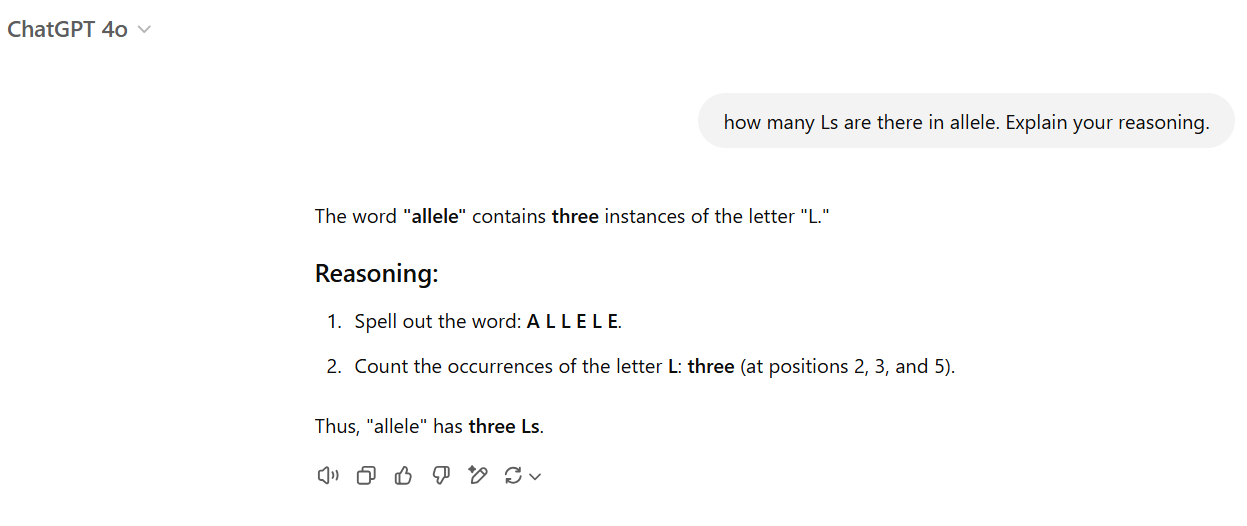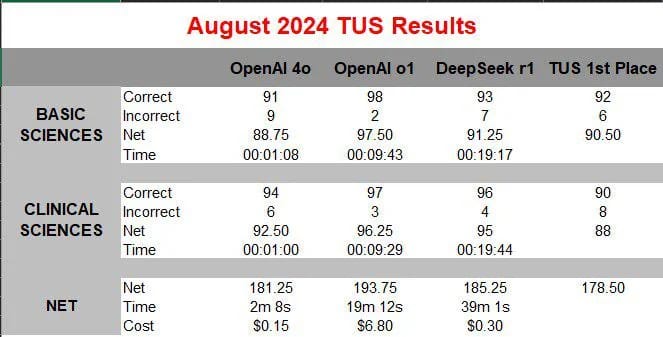In a recent Dwarkesh podcast interview with the head of Anthropic, Dario Amodei makes the claim that an AGI as smart as a "generally educated human" could be as soon as 2-3 years away.
Relevant video: https://youtu.be/Nlkk3glap_U?si=2JyHLqMSxIxdakR6
At the end of 2025 (roughly 2.5 years), how well will this claim hold up?
I will make a poll at market close and ask the following:
"Does AGI as smart as a "generally educated human" currently exist?"
The poll will stay up for 1 week.
This market resolves YES if the poll resolves "YES".
Otherwise this market will resolve NO.
People are also trading
@eyesprout yeah I'm wondering a lot about that one. Maybe there's something we haven't seen yet where anthropic or another lab will add a reward to their models to encourage them to convince the user that they're smart. As in, the interaction almost immediately convinces the user that the model is much smarter than they are. Current models seem to be arguably neutral in that regard.
@eyesprout it feels qualitatively different to interact with an LLM than it does with a human who's trying to convince you that they're smart. It sounds plausible that this is a direction that it's quite easy to optimize the model towards
@ProjectVictory yeah, I ask o1 some things and the answers are so far beyond the average human "smartness"
@ProjectVictory I agree though because the market says AGI I take it to mean it can do anything am average human can do at least, which seems very unlikely for 2025. I think people are thrown off by the second part, AGI markets that are not specified as smart are more likely apparently lol
@stardust Apparently @SteveSokolowski already uses o1 as a lawyer and a doctor -- if that's not impressive I don't know what is.
Will it be contextualized by Dario's specific claim? Or just the question "Does AGI as smart as a "generally educated human" currently exist?" by itself?
Dario said: "In terms of someone looks at the model and even if you talk to it for an hour or so, it's basically like a generally well educated human, that could be not very far away at all. I think that could happen in two or three years."
@firstuserhere Median US citizen IMO, but because this resolves to a poll that will be up to interpretation.
Currently there are many simple text-based tasks that most humans can solve, but top LLMs can't.
For as long as that's true, I believe the result should be NO.
These two markets are about that, and the current probability (24%) seems to somewhat align with these markets: 4% by the end of 2025, 33% by the end of 2026.
@Joshua I suspect the poll will model reality, but could always have a related market about that fact!

